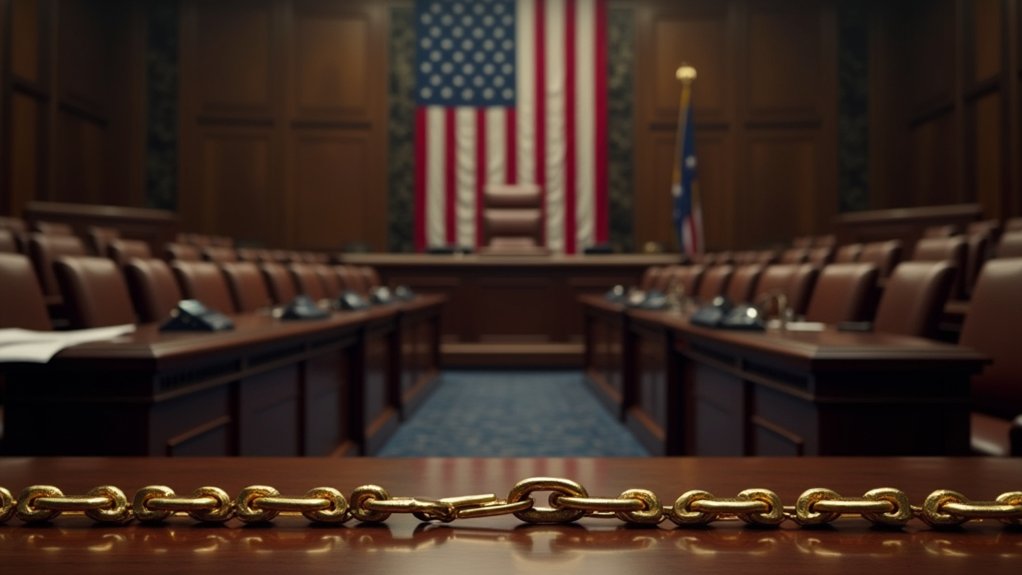Although the House had earmarked July 14 as “Crypto Week,” ostensibly to expedite digital asset legislation, the spectacle of President Trump wrangling with recalcitrant House Republicans—who brazenly defied his explicit directive—laid bare the chaotic dysfunction undermining any semblance of coherent policy advancement, as the very lawmakers charged with shaping America’s crypto future instead prioritized procedural grandstanding and factional obstinacy over pragmatic governance. The initial defiance by hard-line Republicans, who voted against moving forward with a critical crypto bill package, exposed entrenched regulatory hurdles and legislative delays that have become a hallmark of this fragmented Congress. Their insistence on a combined vote for the trio of bills—the CLARITY Act, GENIUS Act, and Anti CBDC Surveillance Act—rather than separate consideration, speaks less to principled strategy and more to tactical obstructionism. This delay comes even as over 65 million Americans hold digital assets, highlighting the urgency of regulatory clarity for a rapidly growing population of cryptocurrency owners.
President Trump’s intervention, including a high-stakes Oval Office meeting with key GOP dissenters, yielded a grudging 215-211 procedural victory, yet the razor-thin margin underscores enduring divisions that threaten any smooth legislative trajectory. Trump claimed to have personally negotiated with 11 of 12 GOP members to secure votes and unify support for the legislation, demonstrating his direct involvement in the legislative process Trump’s negotiation efforts. Despite Trump’s avowed priority to regulate cryptocurrency and his public assurances of deal-making, the House remains mired in factional disputes that render “Crypto Week” a farce rather than a legislative sprint. The bills—designed to clarify regulatory frameworks, protect consumer privacy, and fortify America’s blockchain leadership—face a labyrinth of procedural steps before any meaningful passage can occur. Ongoing bipartisan discussions suggest some hope for eventual regulatory clarity, but the path remains uncertain amid persistent opposition from key factions bipartisan discussions.
Such persistent internal wrangling, masquerading as legislative prudence, instead fuels stagnation and weakens U.S. competitiveness in digital asset innovation. The ongoing stalemate reveals a chamber more interested in political theater than in overcoming the very regulatory hurdles it claims to confront, leaving the nation’s crypto future perilously adrift. Institutional investors, who are driving innovation in custody solutions and compliance frameworks, may grow increasingly wary amid such political gridlock.









